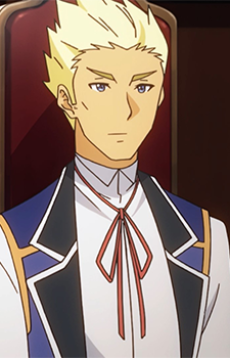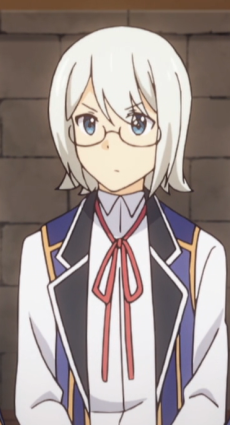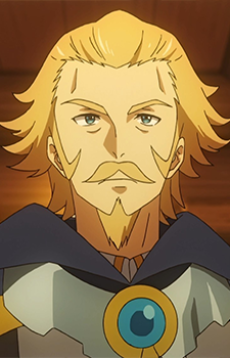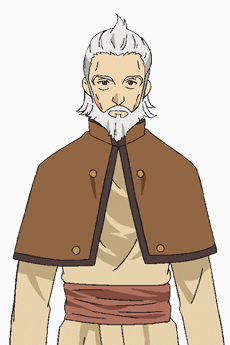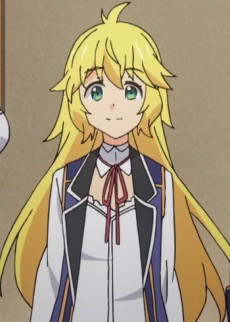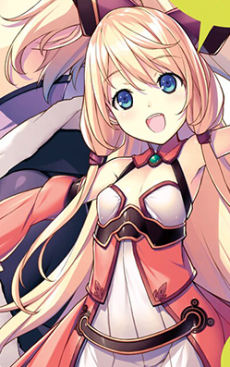
Wise Man’s Grandchild Hindi Subbed [12/12] | Kenja no Mago Hindi Sub!!
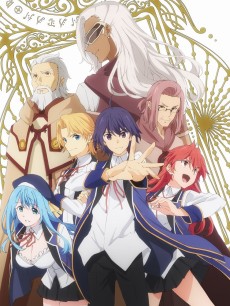
Kenja no Mago
Wise Man’s GrandchildSynopsis
A young man is reborn in another world where he is adopted as a baby by the hero Merlin Wolford and named Shin. By his 15th birthday, Shin has accumulated all kinds of power by studying under Merlin, but one thing his adoptive grandfather didn't give him was a lick of common sense. (Source: Anime News Network)
Watch Trailer
Characters
Wise Man’s Grandchild Season 1: A Deep Dive into an Isekai That Tries Hard but Misses the Mark
Wise Man’s Grandchild (Kenja no Mago), a 12-episode anime that aired in Spring 2019, is an ambitious yet flawed entry in the crowded isekai genre. Directed by Masafumi Tamura and animated by Silver Link, the series adapts Tsuyoshi Yoshioka’s light novel, following Shin Wolford, a reincarnated salaryman turned magical prodigy in a fantasy world. While the show boasts vibrant animation and a likable protagonist, it struggles to break free from the genre’s clichés, resulting in a narrative that feels both rushed and predictable. This review dissects the series’ strengths, shortcomings, and unique elements, offering a fresh perspective on its place in the isekai landscape without resorting to promotional fluff.
A Familiar Premise with a Twist of Potential
The story begins with a classic isekai setup: a Japanese salaryman dies in an accident and is reborn as Shin Wolford in a magical world. Raised by the legendary sage Merlin Wolford and his partner Melinda, Shin grows up in isolation, mastering magic and combat but lacking social skills and common sense. At 15, he enrolls in a magic academy to hone his abilities and integrate into society, facing demonoid threats and forming friendships along the way.
What sets Wise Man’s Grandchild apart—at least on paper—is its focus on Shin’s upbringing under Merlin, a figure whose mythical status adds intrigue. Unlike many isekai protagonists who are thrust into chaos with little preparation, Shin’s rigorous training gives him a foundation that could have been explored deeply. The idea of a hero who’s overpowered yet socially inept is ripe for humor and growth, but the execution falters, leaving much of this potential untapped.
Strengths: Visual Flair and Lighthearted Charm
One of the series’ standout features is its animation, courtesy of Silver Link. The magical battles are a visual treat, with fluid spell-casting sequences and colorful effects that make Shin’s overpowered abilities pop. For instance, episodes like “A Pioneering New Hero” (Episode 5) showcase dynamic combat choreography, where Shin’s creative use of modern knowledge to enhance magic—like crafting explosive spells—feels satisfying, even if narratively simplistic. The score, composed by Kow Otani, complements these moments with an energetic and whimsical tone, elevating the action.
Shin himself is a refreshing protagonist in some respects. Voiced by Yusuke Kobayashi, he’s earnest and well-meaning, avoiding the arrogance that often plagues overpowered leads. His interactions with his friends, particularly Sicily von Claude (Rina Honnizumi), bring a touch of warmth, and his attempts to navigate social norms provide occasional comedic highlights. The ensemble cast, including characters like August von Earlshide (Shohei Komatsu), adds a sense of camaraderie, though their development is limited.
Weaknesses: A Rushed Narrative and Missed Opportunities
Despite its visual polish, Wise Man’s Grandchild stumbles in its storytelling. The pacing is breakneck, particularly in the first two episodes, which cram Shin’s childhood, training, and early adventures into a whirlwind of exposition. This rush sacrifices emotional depth, leaving viewers disconnected from Shin’s journey. For example, his reincarnation and adoption by Merlin are glossed over, robbing the audience of a chance to invest in his transformation from salaryman to magical prodigy. The tonal shifts are equally jarring, swinging between slapstick comedy and serious demonoid battles without a cohesive rhythm, as noted in reviews like the one from Starburst Magazine ().
The series also leans heavily on isekai tropes—overpowered protagonist, harem-like dynamics, and a predictable “save the world” arc—without offering enough innovation to stand out. While Shin’s lack of common sense is played for laughs, it’s rarely explored beyond surface-level gags, unlike series like My Next Life as a Villainess, which cleverly subverts genre conventions. The romance with Sicily feels forced and underdeveloped, with their relationship progressing from shy glances to a marriage proposal in Episode 8 (“A Starlit Pledge”) with little buildup, a sentiment echoed in fan reviews on MyAnimeList ().
Character development is another weak point. Beyond Shin, most characters are reduced to archetypes: the loyal prince (August), the tsundere mage (Maria), the shy love interest (Sicily). Antagonists, like the demonoid leader Kurt von Ritzburg, appear late and lack depth, making the stakes feel artificial. The show’s world-building is similarly shallow, with the magical system and societal structure introduced but never explored in a way that feels lived-in or unique.
A Unique Lens: The Burden of Being Overpowered
One aspect of Wise Man’s Grandchild that deserves closer scrutiny is its handling of Shin’s overwhelming power. Unlike One Punch Man, which uses Saitama’s strength to explore existential themes, or That Time I Got Reincarnated as a Slime, which balances power with diplomacy, this series doesn’t know what to do with Shin’s dominance. His ability to invent modern technology—like enchanted gear or communication devices—hints at a fascinating blend of isekai and scientific ingenuity, but these ideas are underutilized, often serving as plot conveniences rather than narrative drivers. A MyAnimeList reviewer aptly noted that Shin “pulls magic spells out of his ass without explanation,” highlighting the lack of grounding in his abilities ().
This raises an intriguing question: how does an overpowered protagonist maintain narrative tension? The show attempts to address this by having Shin train his peers, forming the “Ultimate Magic Research Society” to combat demonoids. However, this group dynamic feels like a missed opportunity to explore mentorship or collective growth, as Shin’s solutions overshadow everyone else’s contributions. A more introspective approach—perhaps examining the psychological toll of being unmatched or the responsibility of wielding such power—could have elevated the series beyond its generic framework.
Cultural Context and Audience Expectations
To understand Wise Man’s Grandchild’s reception, it’s worth considering its place in the 2019 anime landscape. The isekai boom, fueled by hits like Re:Zero and The Rising of the Shield Hero, set high expectations for originality and emotional depth. Fans on platforms like Anime-Planet and MyAnimeList expressed disappointment with the show’s “aggressive mediocrity” and “cringe-worthy” adaptation of its source material (,). Yet, some viewers, as seen in IMDb reviews, appreciated its lighthearted escapism, calling it a “great anime” that deserves more love (). This divide reflects the tension between casual viewers seeking fun and critics demanding innovation.
The series’ appeal lies in its simplicity, catering to those who enjoy straightforward power fantasies with minimal stakes. As one MyAnimeList reviewer put it, “It’s not original, but it’s fun to watch” (). For fans of relaxed, trope-heavy isekai like In Another World with My Smartphone, Shin’s adventures hit the mark. However, for those seeking the narrative depth of Mushoku Tensei or the subversive humor of Konosuba, the show feels like a relic of an oversaturated genre.
Technical Merits and Missed Potential
From a technical standpoint, the series is competent but unremarkable beyond its battle sequences. The character designs by Yuki Sawairi are appealing, with Shin’s casual attire and Merlin’s wizardly aesthetic fitting the fantasy vibe. However, the animation quality dips in quieter scenes, with static backgrounds and recycled expressions. The English dub, featuring voices like Daman Mills as Shin, is serviceable but lacks the spark of the Japanese cast, as noted in commentary included in the Blu-ray release ().
The series’ 12-episode run feels both too short and too long—too short to flesh out its world and characters, yet too long for a story that doesn’t evolve beyond its premise. A longer season might have allowed for deeper exploration of Shin’s past life or the demonoid threat, but the rushed pacing suggests a lack of confidence in the material’s staying power.
Final Verdict: A Fun but Forgettable Isekai
Wise Man’s Grandchild Season 1 is a paradox: a visually engaging, lighthearted romp that fails to leave a lasting impression. Its strengths—dynamic animation, a likable lead, and flashes of humor—are undermined by a formulaic plot, shallow characters, and a refusal to take risks. While it avoids the worst isekai pitfalls (like excessive fanservice or problematic themes, as noted by Anime Feminist []), it doesn’t capitalize on its unique elements, like Shin’s modern knowledge or Merlin’s mentorship.
For newcomers to isekai, the series offers an accessible entry point, but seasoned fans will likely find it lacking compared to genre standouts. It’s the kind of show you watch on a lazy afternoon and forget by the next, as one MyAnimeList reviewer quipped, “a nobrainer you watch and forget about after 2 weeks” (). If you’re craving a magical adventure with low stakes and a touch of charm, Wise Man’s Grandchild delivers just enough. But if you’re seeking a transformative take on isekai, you’ll need to look elsewhere.
Rating: 6/10 – A passable but unmemorable addition to the isekai genre, elevated by visuals but weighed down by clichés and missed opportunities.
Support Our Anime Community!
Love watching the latest anime? Help us keep uploading new episodes by join telegram channel ❤️
Join Now!






